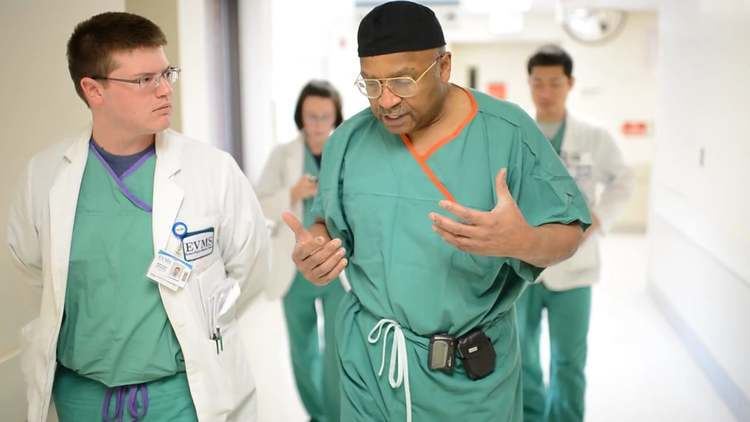
The COVID-19 pandemic laid bare the different realities of health care for people of color in Virginia.
Black people are more likely than others to die from the virus. Latino people, at one point, made up the majority of coronavirus cases despite being only a small portion of the population.
Most experts agree those statistics come from the ways people of color live, decisions impacted by education, job opportunities and more.
Del. Lashrecse Aird of Petersburg wants the state to acknowledge, and then try to address, that problem by declaring racism a public health crisis.
Doing so could create more staff in the state health department to study and address health disparities, according to her legislation.
"More than 100 studies have linked racism to negative health outcomes, including research supporting that the cumulative experience of racism throughout one's life can induce chronic stress and chronic health conditions that may lead to otherwise preventable deaths," Aird's legislation says.
Dr. L.D. Britt at Eastern Virginia Medical School studies those kind of disparities.
Here's what he said about racism and health:
Mechelle Hankerson: You study health disparities in your work at EVMS. What exactly is a health disparity?
Dr. L.D. Britt: Health disparities when everyone isn't getting the same health care. For example, in this country, 45,000 people die because they don't have insurance. Black babies die twice as much as the white babies if they don't have a Black doctor, which means that that person does not have access to care in the community. So there's a long list of disparities, it goes all the way back. As a child, we had to pack a lunch, and dinner, because they have like three physicians in the community. And it took hours sometimes just to have a physician. Now, it may seem disparities will be much less, but they actually have gotten worse. If I threw a dart at a map and hit someone who was ill, I should be able to know that that person will get the optimal care. Well, that's not the case. There are some places in the country, they don't have enough physicians, there's some places in the country where your life expectancy is much less,
Mechelle Hankerson: As a doctor, a Black Doctor, what are some of the most concerning health outcomes or trends that you notice among Black patients?
Dr. L.D. Britt: How can we have an infant mortality based on discriminatory practices? Even in Hampton Roads, you have the deaths of mothers twice that of someone white, because they don't have access. They don't they don't have the perinatal care. So you know, people who have obviously cardiovascular problems, they are not offered the optimal treatment. There was a good report that showed that if you were in an impoverished or a minority background, you will likely be offered an amputation instead of a restorative procedure. That's discrimination.
Mechelle Hankerson: Now you're a Hampton Roads native born in Suffolk. In your experience as a doctor and resident, how do health disparities impact people of color here?
Dr. L.D. Britt: There are communities in Hampton Roads that don't have access. They can get into the clinic in Norfolk, but there's not an equivalent type clinic in Suffolk. And people are trying but we definitely don't have the resources and and distribution of resources and lack of access. And you said, why is that the case? I call the structural racism and all of that, but at the end of the day, there's a reason for it. We could do better.
Mechelle Hankerson: Lawmakers want to declare racism a public health crisis. Do you agree with that decision?
Dr. L.D. Britt: Well, I'm not sure I would paint it that way. We know that racism exists. The best thing is how can we have good care for all our citizens? Let's focus on that. Let's focus on optimal care. That's what I would like them to focus on. Sure, racism, we know that's a driving force. Also, there's a driving force being impoverished. As I said before, you have no chance of not having access and having obviously, poor outcomes, and at best fair, outcomes.
Mechelle Hankerson: How is the coronavirus pandemic impacted people's understanding of public health and communities of color and how those things intersect?
Dr. L.D. Britt: If you didn't see it before, you see it now. So now, you see it more so in the distribution of can you see it a little bit with the distribution of vaccines. You'll see it more during a pandemic or something severe, it usually will highlight disparities and that's what we're dealing with. The people suffering the most of the people who obviously don't have access to have access to the vaccines they don't have access to follow up.





